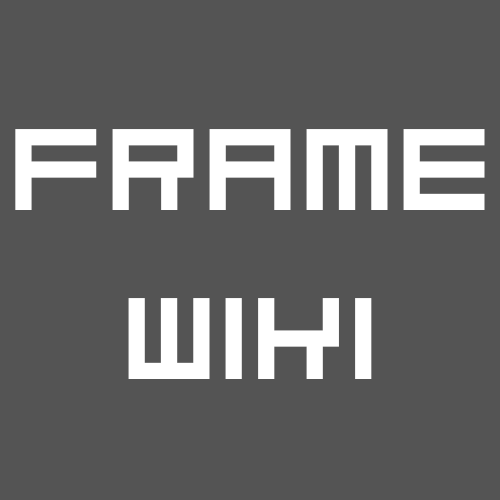Framewiki: Guidelines
Code of Conduct
All editors are expected to adhere to Framewiki’s Code of Conduct. In addition to defining acceptable and unacceptable behavior for community interactions, the document specifies the enforcement process for intentional violation of these content guidelines.
Verifiability
To ensure all content on Framewiki is verifiable, claims should be backed up with citations to a trusted source whenever possible. Trusted sources include Framework blog posts, professional media, and official posts from Framework employees. Unconfirmed community speculation should never be cited as a source, and such citations should be replaced with a [citation needed] tag.
Do not use Framewiki to publish original reporting, research or testing. It is acceptable to cite test results posted elsewhere, including on the community forums, so long as the results are repeatable and verified by multiple community members. Non-repeatable or unverified testing should be treated as community speculation.
Creating Pages
Create a new page for new Framework product lines, and for each generation within a given product line. If there is only one generation of a product, do not create separate pages for the generation and the line until a second generation is announced.
Pages may also be created for Framework-adjacent companies, defined as companies that partner with Framework to create intentionally Framework-compatible parts such as mainboards or expansion cards, and their Framework-compatible products. Framewiki is not a general right-to-repair wiki; all pages must be specific to Framework.
Guides
Pages for guides or instructions should be included on the Guides list page and include the guides note. Ensure the guide specifies what products it applies to. If there are different guides that accomplish a similar task but on different products — for example, mainboard reset instructions that differ by generation — add each guide under its own heading on the same page if appropriate.
Guides are written and maintained by the Framewiki community. Editors should carefully test guides to ensure they are easy to follow and will not cause damage when followed exactly. However, guides on Framewiki are provided as-is and without warranty of any kind, express or implied. Reliance on Framewiki guides is at your own risk and may void your warranty. Official Framework guides can be found at https://guides.frame.work.
Removing Pages
If a page has little content and qualifies as a stub, it may be a candidate for deletion if the content could be combined into an existing page. Before deleting a page, consider whether there is other information that could be added to the page to make it longer. Always mark the page as a stub and post in the discussion section before deleting it, to give editors an opportunity to discuss and add additional content.
Deleted pages should be removed from navigation immediately and replaced with a redirect to the page on which the content is now located. Editors should take special care to avoid breaking existing hyperlinks when removing a page.
Vandalism and Spam
Vandalism is any edit deliberately intended to obstruct or defeat Framewiki’s purpose to serve as a resource about Framework and Framework-adjacent products for the Framework community. The malicious removal of content, or the changing of such content without any regard to these content guidelines is a deliberate attempt to damage Framewiki. Even if misguided, against consensus, or disruptive, any good faith effort to improve Framewiki is not vandalism.
Vandalism is prohibited, and may result in Code of Conduct enforcement action. Editors are encouraged to reverse vandalism and spam, and alert the administrative board so they can review the incident. Spam, including advertising or self-promotion, is also prohibited.
Pages that are frequently vandalized, or that are likely to be vandalized, may be protected such that changes require review from trusted editors and/or maintainers before publication. See Framewiki: Protection.
Disputes
Disagreements in wikis are normal; editors will frequently disagree with each other, particularly on content decisions. Editors are expected to engage in good faith to resolve their disputes, and must not personalise disputes. Many disputes can be resolved without external input, through gradual editing, discussion, and attempts to understand the legitimate objections of others. However, if independent resolution efforts fail, or if an issue requires formal adjudication, editors may escalate the dispute to the administrative board for a final decision.
When you find a passage in an article that does not adhere to these guidelines, the best practice is to improve it if you can rather than deleting salvageable text. Always explain your changes in the commit message and/or Pull Request description. If an edit is too complex for that format or the change is contentious, add a section to the page’s discussion section that explains your rationale.
If your edits are reverted, continue to explain yourself. Do not start an edit war. Repeatedly reversing another user’s changes may be enforced as a Code of Conduct violation.
